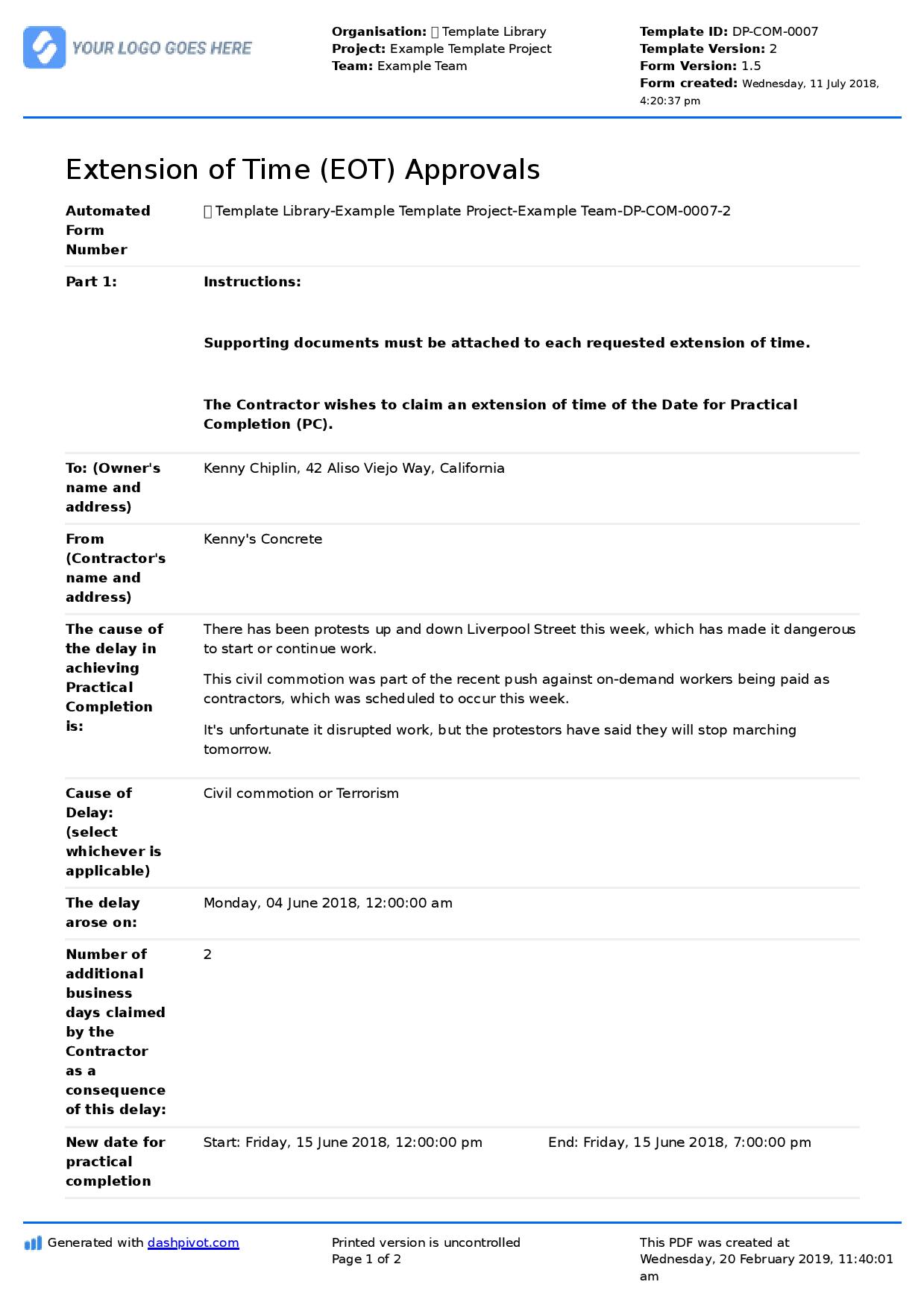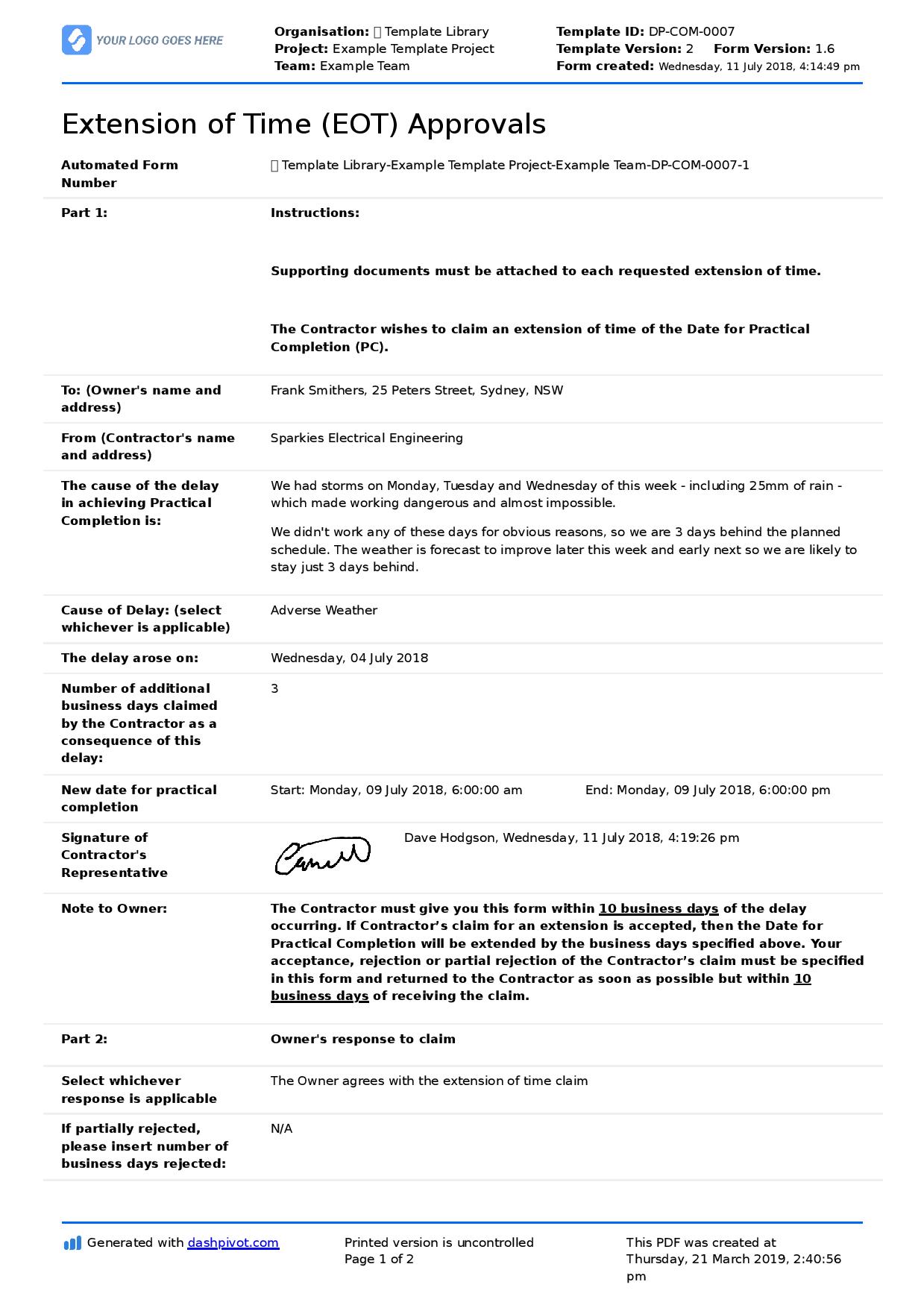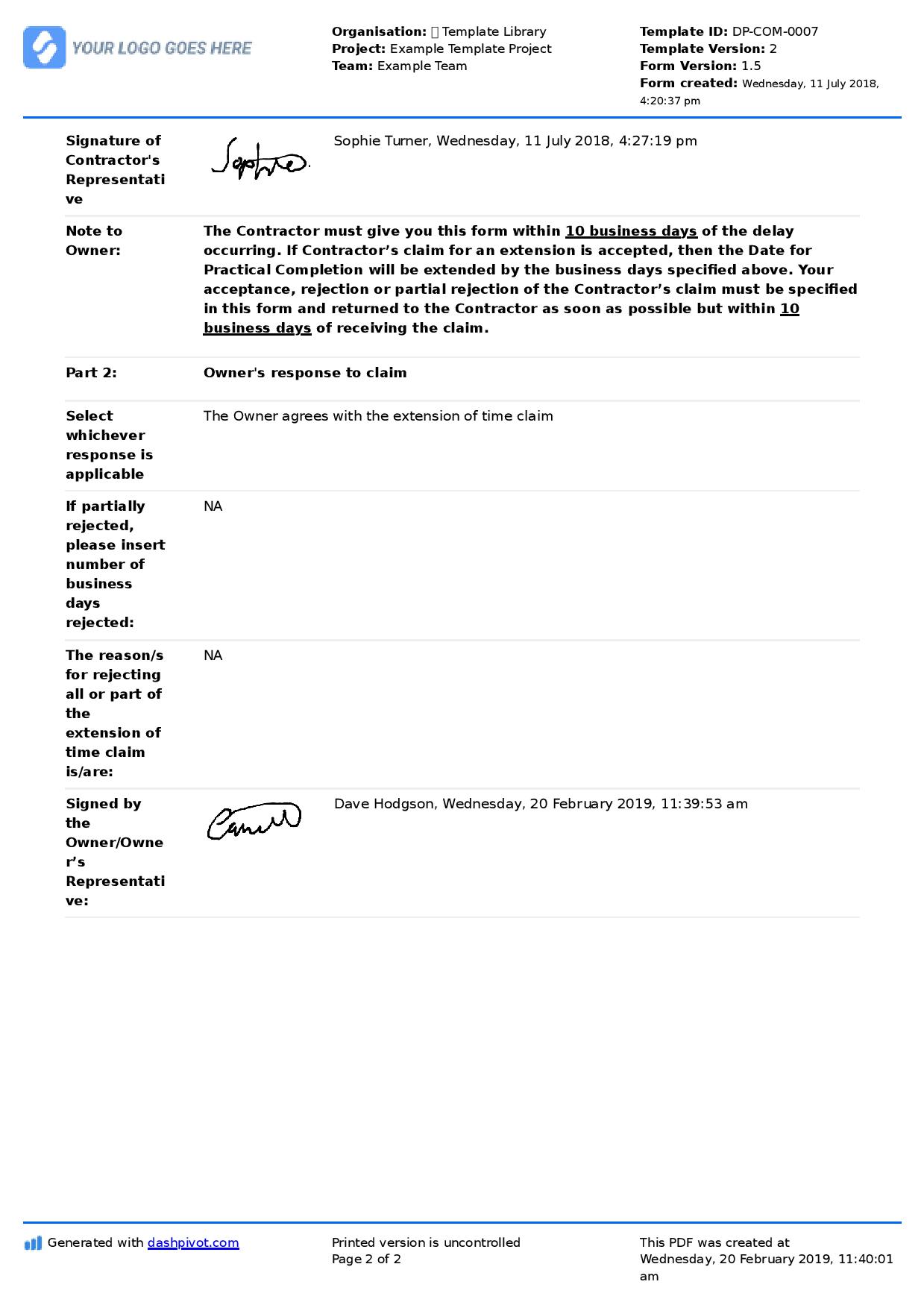Commercial – Project delay letter to client
Project delay letter to client
Causing or communicating a delay to a client is never ideal, but you can soften the blow and be professional in sharing updates by following the below project delay letter to client/s, as well as using the other tips and reosurces shared in this article.

About project delays
There are two things which project based companies and asset owners and operators (the client) want to avoid at all costs - projects being delivered and over budget.
The main cause of projects being delivered late and over budget are dreaded delays, which can leave clients without finished assets for weeks, months and even years.
Construction and other industrial projects are complicated, with thousands of interdependent moving pieces making project delays a nightmare. One small delay can quickly snowball into a larger impact on more and more project parties.
To combat this, contractors and other parties work hard during the planning phases of projects to build in margin, and work hard throughout the project tracking progress and course-correcting in order to attempt to mitigate delays and get the asset delivered to the client on time.
Even so, project delays are an inevitable part of running projects, do occur, and will continue to occur.
There are many common causes of projects getting delayed, including:
- Adverse weather
- Design changes
- Latent conditions
- Subcontractor delays
- Civil commotion or terrorism
- Delays in receiving possession of site
- Employee strikes
- Changes in regulations
Some of these delays are 'caused' or dictated by the client, while some of them aren't.
When the client doesn't make a proactive decision about a design or similar change, then it is up to the contractor or responsible party to issue a project delay letter to the client.
Project delay letter to client sample
No contractor want to send a project delay letter to their client, but communicating the good and bad news frequently with the client is a far smarter approach to project management than hiding important details or attempting to solve really big problems behind the clients back.
The makeup of the project delay letter to clients will depend on the nature and detail of the delay. A small delay may only need a minor update while a large and ongoing delay will likely need more detail and an action plan for moving forward.
The sample project delay letter to client below is an example of what a normal project delay letter looks like.
The key elements of the letter are:
- An apology at the start of the letter to set the tone of the letter to your client
- An explanation/description of the reason for the delay
- The expected length of the delay
- New updated deadlines
- Open the letter up to a discussion or further questions for the client
Take a read through the entire sample project delay letter below, and feel free to use this framework for your own letters.
There is a smarter way to communicate these delays than a simple letter - which is covered in detail below.
[Insert Date]
To: [Company Name]
[Address]
[City, state, zip]
LETTER TO CLIENT REGARDING PROJECT DELAY
I’m sorry to inform you that we are experiencing a delay in the [insert project] and have adjusted the timeline according to the new scenario.
Due to [reason for delay], the [project name] has been delayed by [insert length of delay].
Our new estimated deadline (phase of works, practical completion date etc.) is [insert date]. We are confident that once this delay has been solved and properly analysed, we will be able to complete the project quickly and efficiently.
We appreciate your flexibility and understanding as we tackle this unforeseen issue.
Thank you. Please contact me if you have any questions about the delay, the new schedule or anything else.
Sincerely,
Signed by,
Authorised Person
The smarter way to manage project delay communications with clients
While simply writing and email project delay letters to clients has worked in the past, it isn't the most organised or streamlined way to manage these communications - especially at scale.
In fact, the smarter way to manage your project delay letters to clients and communication with clients in general is in the same way that you capture and share other project information - via proper documents.
An example of this is below, in the form of an extension of time approval or EOT.
You'll see how much more comprehensive and professional this 'letter' to the client is, featuring designated sections for delay details, new date for practical completion, and digital signoffs for the client.
When a project delay letter like this is issued, the client can simply sign off on the delay in a digital format, and the contractor can continue getting on with the project.
Improving communication here can really impact the length of the delays by improving the speed of information as well as the quality of information - giving the client more information for making quicker and better decisions.
In addition, it may also be worth completing and sharing a delay analysis report, which shows the client that the project parties are being proactive in reducing the chances of avoidable or repeat delays.

Use this template instead of difficult project delay letters to clients.
The smarter way to manage project delay communications with clients
If you like to look for continuous improvements in your commercial and project communication processes, then it may be worth looking at streamlining your entire information management system (IMS).
In addition to streamlining project delay letters, a system like Dashpivot can do the same for all of your project forms and information.
You can digitise and simplify site information capture through site diaries and daily progress reports (all captured with a daily reporting app), as well as streamline financial, safety, environmental and quality tasks like punch lists.
Imaging being able to consolidate your currently time-consuming processes which are fragmented across letters, email, word docs, PDFs etc. into one consolidated software where everything is digital and easy to manage.
Good project management starts with good planning, good communication and ongoing progress tracking and course-correcting.
You can get this all done with a tool like Dashpivot - or at least professionalise and improve your project delay letters to your clients.


Sometimes it might feel like writing about your progress in detail is redundant, especially when you’ve been regularly communicating with your supervisor, teammates, and client throughout the course of the project.